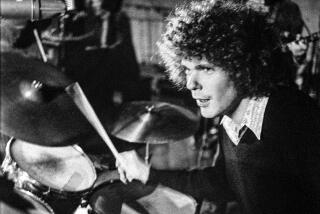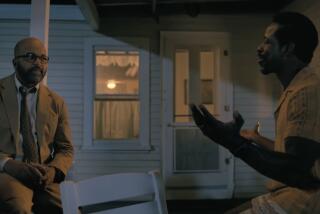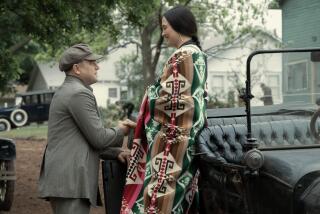HOLLYWOOD HABITS : Leave ‘Wyatt Earp’ Off His Tombstone : Movies: Scripter Dan Gordon wants critics to know that the film is different from what he and Kevin Costner wrote and from his book.
- Share via
Hollywood writers are paid a lot to relinquish control. But that doesn’t eradicate the pain. Even the most thick-skinned watch in frustration as their vision takes unanticipated turns.
Such was the case with “Wyatt Earp,” according to a letter that writer Dan Gordon dashed off to critics lambasting the screenplay. The three-hour-plus film, rewritten by director Lawrence Kasdan, had opened to downbeat reviews and equally discouraging audience response. While he didn’t want to disparage Kasdan, Gordon stressed, neither did he want his “Murder in the First”--a courtroom drama to be released by Warner Bros. in the fall--to be tainted by any “residual aftertaste.”
According to Gordon, a veteran screenwriter responsible for such films as the 1992 hit “Passenger 57,” the final version of the script was a far cry from the one he and “Wyatt Earp” star/co-producer Kevin Costner had knocked out over nearly three years. To illustrate his point, Gordon sent along a copy of his novelization and a book-on-tape he narrated himself--both based on his version of the story.
“Kevin and I were visualizing a ‘Western Godfather,’ ” recalls Gordon, whose involvement with the project ended when Kasdan came on board in early 1993. “It was to be two movies, in fact, centering on three families: the Earps and two organized crime families. Mike Gray, a bizarro mirror image of Earp, managed to get Tombstone, the richest town west of the Mississippi, deeded to his private company. It was a land grab worth $10 million to $20 million in 1880 dollars--and the only thing between him and that money was Wyatt Earp. That’s what our story was about.”
Costner’s mandate, Gordon recalls, was to ensure that every part in the picture was so strong that he had difficulty deciding which one to play. The rewrite, he maintains, not only eliminated the villains but tacked on a lengthy, superfluous opening sequence, diluted the love story and substituted an inconclusive flashback for the more satisfying original ending.
“Our version put the whole story into the realm of classic tragedy,” says Gordon. “Earp realized that he had become that which he was fighting against. And there’s no sign of China Mary, who served as the Greek chorus of the piece, or the whole Tombstone Chinese community.”
Gordon believes that the movie he and Costner visualized would have more easily differentiated itself from the similar “Tombstone,” a December, 1993, release that some believe negatively affected the Kasdan film’s box office. (“Instead of offering the same film with a different cast, we would have had a different film with a different cast,” he says.)
Still, he remains philosophical.
“I’m gratified that my original vision is preserved in the book and the book-on-tape,” Gordon asserts. “The director’s vision of my screenplay is on film. I’ll stand by mine, and I’ll let him stand by his.”
Kasdan, who is in Paris preparing the romantic comedy “Paris Match” starring Meg Ryan and Kevin Kline, declined to comment--as did Costner, who is in Hawaii shooting “Waterworld,” a futuristic action-adventure movie for Universal Pictures.
More to Read
Only good movies
Get the Indie Focus newsletter, Mark Olsen's weekly guide to the world of cinema.
You may occasionally receive promotional content from the Los Angeles Times.







